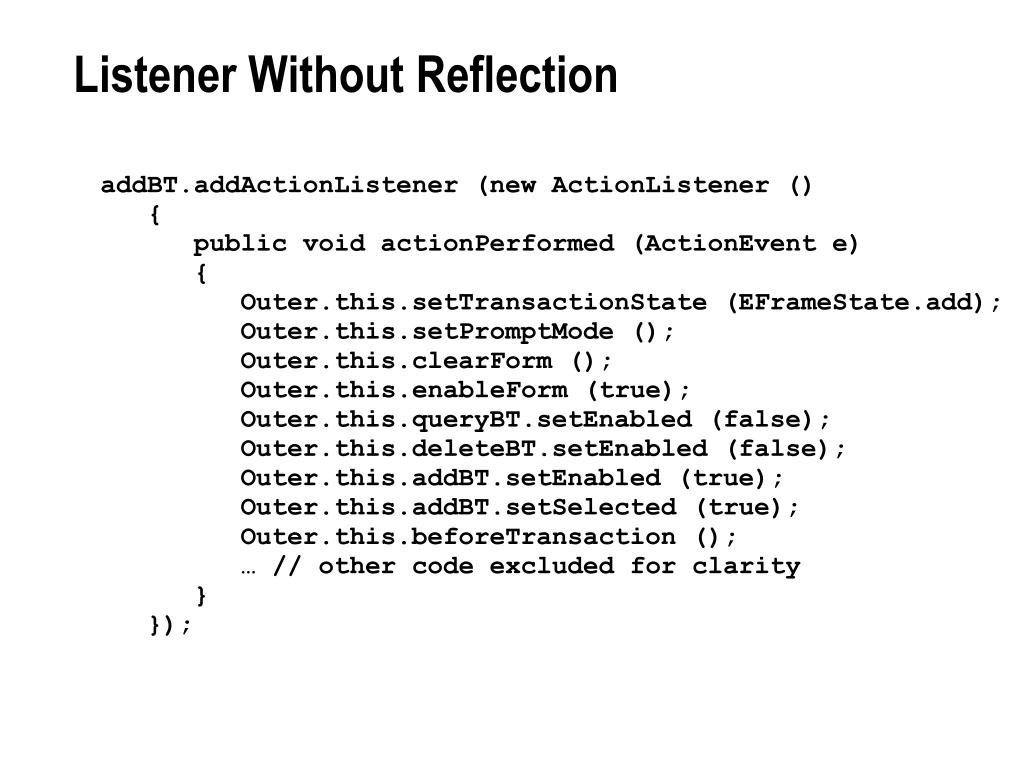

With this you are instructing that you want the protected method being declared on BaseReceiver class. Java provides a wrapper class Boolean in java.lang package.The Boolean class wraps a value of the primitive type boolean in an object. Method retrieveItems clazz.getDeclaredMethod ('retrieveItems', String.

As this method will return MyReceiver.testMethod() method, and this is not accessible from BaseReceiver (as you can see you are using this.getClass(), what returns the instance class, in this case MyReceiver). The method youre looking for does take an argument, a string, so you should call. The Animal class is inherited by the Dog. Now, as you can see on your code, you are doing: method = this.getClass().getDeclaredMethod("testMethod") this seems ok, but it isn't what you intend. In the above example, we have a protected method named display() inside the Animal class.

JUnit test case: void testcheckORCondition() throws Exception ) ĪssertEquals("200", message.getMessageCode()) Message.getMessageCode() + ": " + message.getMessageType() + ": " + message.getMessageText()) After obtaining the declared method, we can then invoke it using reflection by calling the invoke () method on the Method object. Then you can call service.retrieveMembers (status) directly.
Java reflection protected method code#
Throw new EISClientException("One of the specified message code matched returned errors." + However, it is possible to call private and protected methods that have been declared on a class (but not inherited) by calling getDeclaredMethod () on a Class object. If you put your testcases in the same package ( com.myapp instead of ) they will have access to protected (and default package level) members. Message message = containsAMessageCode(getMessageCodes(), messagesMap) Method to be tested: protected void checkORCondition( Map messagesMap ) throws EISClientException As always, the example code can be found over on Github.

Java reflection protected method how to#
We also showed how to change the accessible flag on the reflected method objects to suppress Java access control checks when invoking private and protected methods. a protected method can be marked as public, but they cannot be restricted, e.g. In this quick article, weve seen how to call instance and static methods of a class at runtime through reflection. In my test case I've used Reflection to access the method but I am not exactly sure whether I am doing it in a right way. The visibility of methods, properties and constants can be relaxed, e.g. I am testing a method which is protected.


 0 kommentar(er)
0 kommentar(er)
